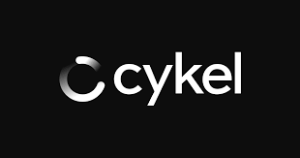The CEO of Tether, Paolo Ardoino, responded to a recent hack experienced by OpenAI by emphasizing the importance of localized AI models for ensuring privacy and preventing future security breaches. Ardoino stressed that only localized AI models can adequately protect individual privacy and provide the necessary resilience and independence.
Tether on the Importance of Localized AI Models
Ardoino pointed out that modern devices, such as smartphones and laptops, possess enough computational power to fine-tune general large language models (LLMs) with a user’s own data, preserving these enhancements locally on the device. He highlighted that localized AI models eliminate the need for third-party servers, thus enhancing security and privacy while allowing for offline use. This approach represents a significant shift in user privacy and independence, allowing users to enjoy powerful AI-driven experiences and data analysis while maintaining complete control over their information.
Tether and its Expansion into AI
Tether recently announced its expansion into AI, with Ardoino revealing that they are actively exploring the integration of locally executable models into their AI solutions. This move aligns with Tether’s commitment to enhancing user privacy and security in the wake of increasing concerns over AI model hacks.
The OpenAI Hack
In early 2023, a hacker gained access to OpenAI’s internal messaging systems, compromising details of the company’s AI design. Sensitive discussions between OpenAI employees were stolen, raising significant concerns about the security of AI models developed by major tech companies. Additionally, it was revealed that user conversations on macOS were stored in plain-text files, further highlighting vulnerabilities in AI systems.
Industry Concerns Over Big Tech Monopolies
The hack has fueled ongoing concerns about the dominance of major AI developers like OpenAI, Google, Meta, and Microsoft. Analysts and governments worry about the implications of a Big Tech monopoly over AI models, particularly in terms of user privacy and data control. There have been calls for the decentralization of AI, with initiatives like 6079 advocating for a fairer AI future by challenging the dominance of major tech companies.
Conclusion
Ardoino’s advocacy for localized AI models underscores the need for a shift towards more secure, private, and independent AI systems. As Tether explores the integration of these models, the industry continues to grapple with the balance between innovation and security in the rapidly evolving AI landscape.
See also: Cloudflare Launches Tool To Block AI Bots From Scraping Websites


















